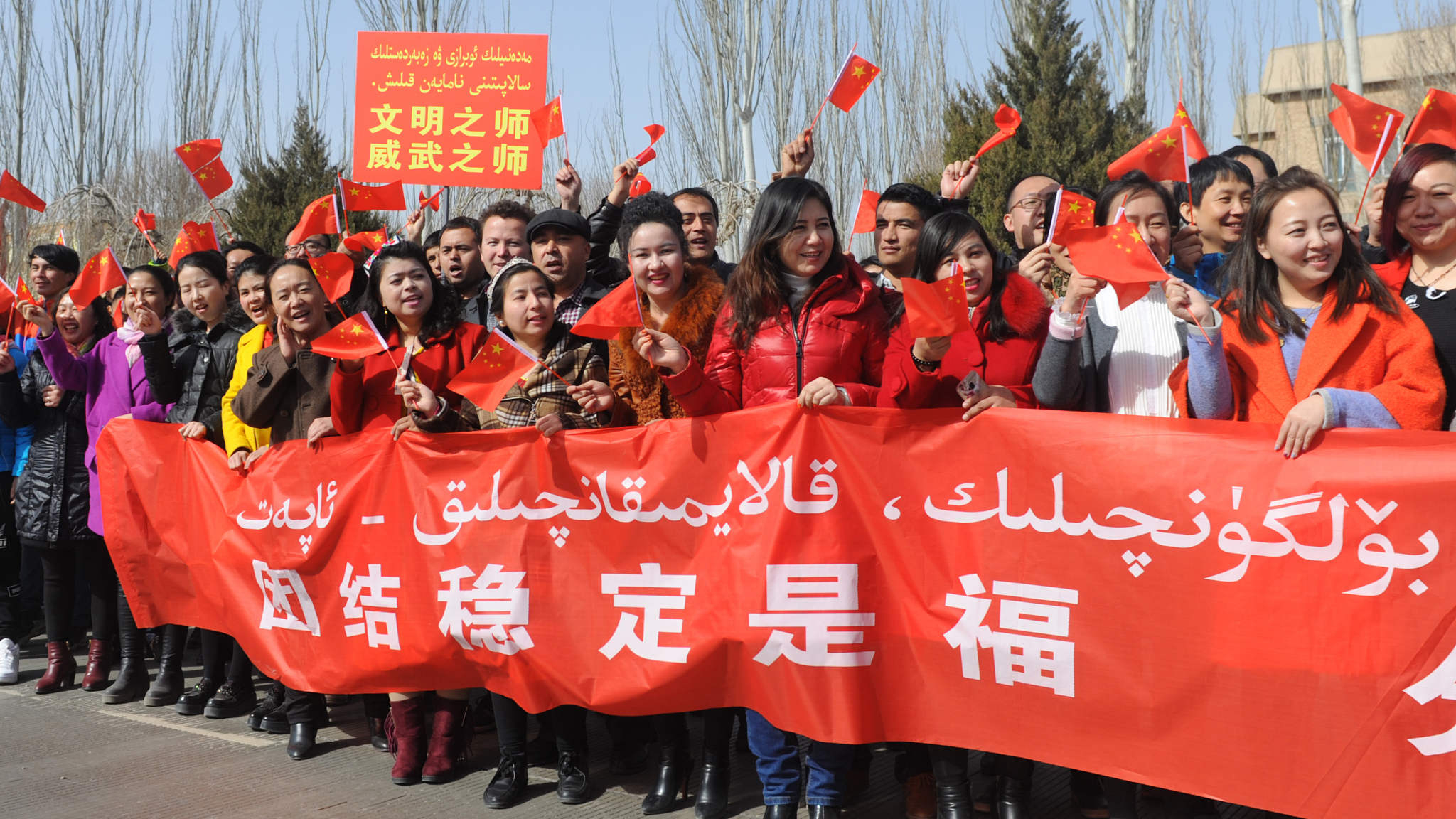
Politics
11:19, 16-Oct-2018
Xinjiang governor: Vocational education program is terrorism prevention
Updated
10:26, 19-Oct-2018
CGTN

Xinjiang, facing imminent terror threats, has taken measures in preventing and combating violent terrorist crimes, Shohrat Zakir, chairman of the Xinjiang Uygur Autonomous Region, told Xinhua News Agency in a recent interview.
His comments came after the regional government passed a new law to legalize the vocational education program on October 9.
Resolutely combat terrorist crimes
Zakir said Xinjiang has suffered from violent terror attacks plotted by the "three evil forces" – terrorism, extremism and separatism – since the 1990s, which has gravely jeopardized people's livelihood and social development.
Facing complex and grave circumstances as well as the pressing anti-terrorism desire of the people, the Chinese government has resolutely taken measures in preventing and combating violent terrorist crimes in accordance with the law, Zakir said.
Now Xinjiang is generally stable with the situation under control and improving, he said, adding no violent terrorist attacks have occurred and the number of criminal cases has dropped significantly in the past 21 months.
Public security has notably improved with religious extremism effectively contained, while people are now feeling more secure, Zakir noted.

Xinjiang law enforcement forces vowed to fight terrorism in a mass gathering in Hotan, Xinjiang, on February 27, 2017. /VCG Photo
Xinjiang law enforcement forces vowed to fight terrorism in a mass gathering in Hotan, Xinjiang, on February 27, 2017. /VCG Photo
Dividend of effective counter terrorism
Xinjiang has started to enjoy the dividend of effective counterterrorism efforts with its economy steadily growing, people's livelihood improving, and overall progress being made in all respects, according to Zakir.
In 2017, the region had a 7.6 percent growth in GDP while the per capita disposable income of urban and rural residents increased by 8.1 percent and 8.5 percent, respectively.
Tourism boomed in 2017 when the region registered more than 100 million trips by domestic and international tourists, a year-on-year growth of 32.4 percent.
In the first nine months of this year, Xinjiang has already recorded 132 million trips by tourists from home and abroad, a 40 percent year-on-year increase.
Fighting and preventing terrorism equally important
Zakir said Xinjiang has given equal importance to fighting and preventing terrorism, and sought to combine the fight against violent terrorist crimes with the protection of human rights.
On one hand, Xinjiang has put emphasis on strictly countering a small number of violent terrorist crimes according to law, and spared no efforts in protecting the basic human rights of the citizens from the harm of terrorism and extremism, Zakir explained.
On the other hand, Xinjiang has also stressed addressing the root cause of terrorism, and moved to bring around, educate and save the majority of those who committed petty crimes, through assistance and education, to prevent them from becoming victims of terrorism and extremism, he added.
Vocational education program
In response to the launch of the vocational education program, the chairman said it is a measure to prevent the spread of terrorism and extremism in remote areas.
The regional legislature had passed revised legislation that local governments can educate and transform people influenced by extremism at vocational education centers. The law took effect on October 9.
Zakir said people living in remote areas, in particular four prefectures in southern Xinjiang, are easily affected by extremism, as people there have a limited command of the country's common language and a limited sense and knowledge of the law, and they often have difficulties in finding employment due to limited vocational skills.
The program is to get rid of the environment and soil that breed terrorism and religious extremism and stop violent terrorist activities from happening, he noted.
High recognition for vocational education program
The launch of the program has won high recognition and sincere support from people of all ethnic groups across Xinjiang, Zakir said.
It has played an important role in achieving social stability and enduring peace and security in Xinjiang, and served as a positive exploration and constructive attempt for the international community in countering terrorism and eradicating extremism, he added.
Zakir said some trainees have come close to or reached the completion standard agreed in the training agreements, according to feedback from the vocational education and training institutions.
The government is busy with their employment arrangements, he said, adding Xinjiang will carry out programs to invite investments that suit the vocational skills of trainees.
Source(s): Xinhua News Agency

SITEMAP
Copyright © 2018 CGTN. Beijing ICP prepared NO.16065310-3
Copyright © 2018 CGTN. Beijing ICP prepared NO.16065310-3